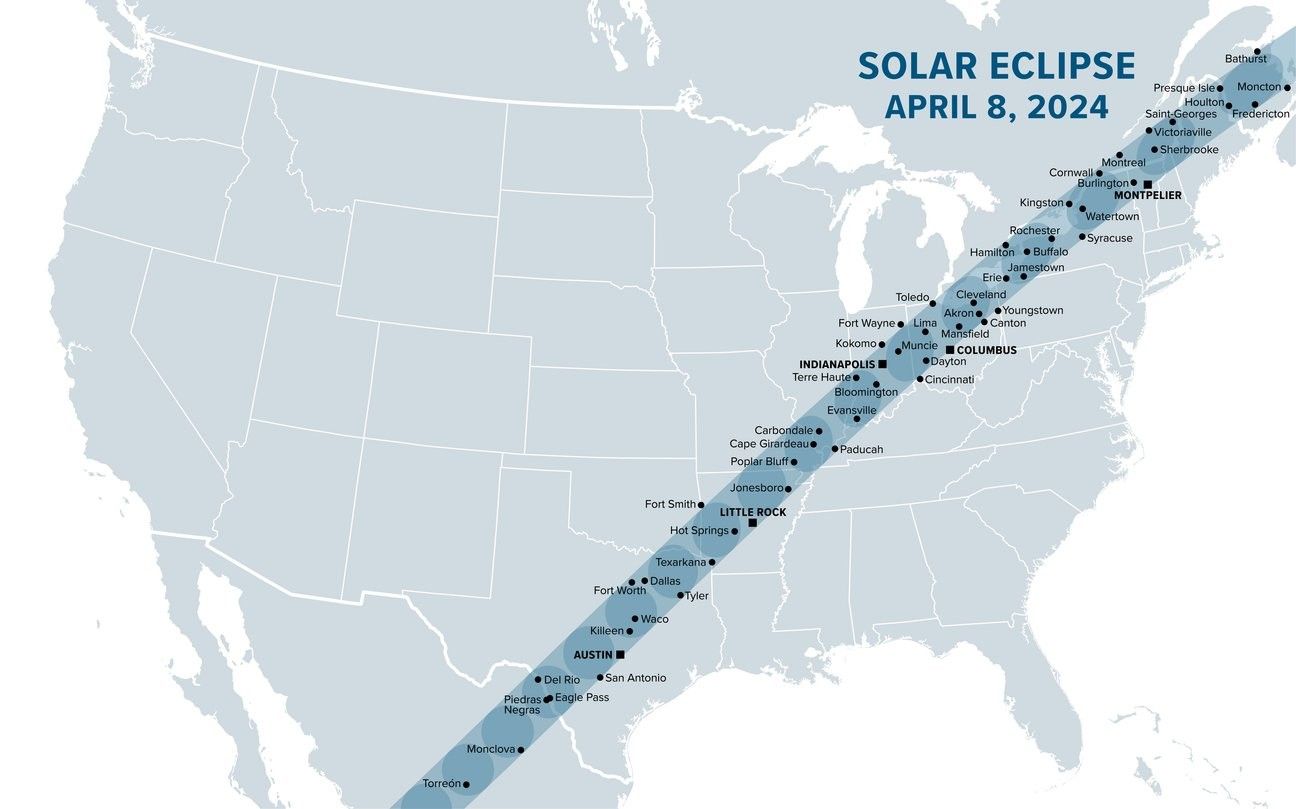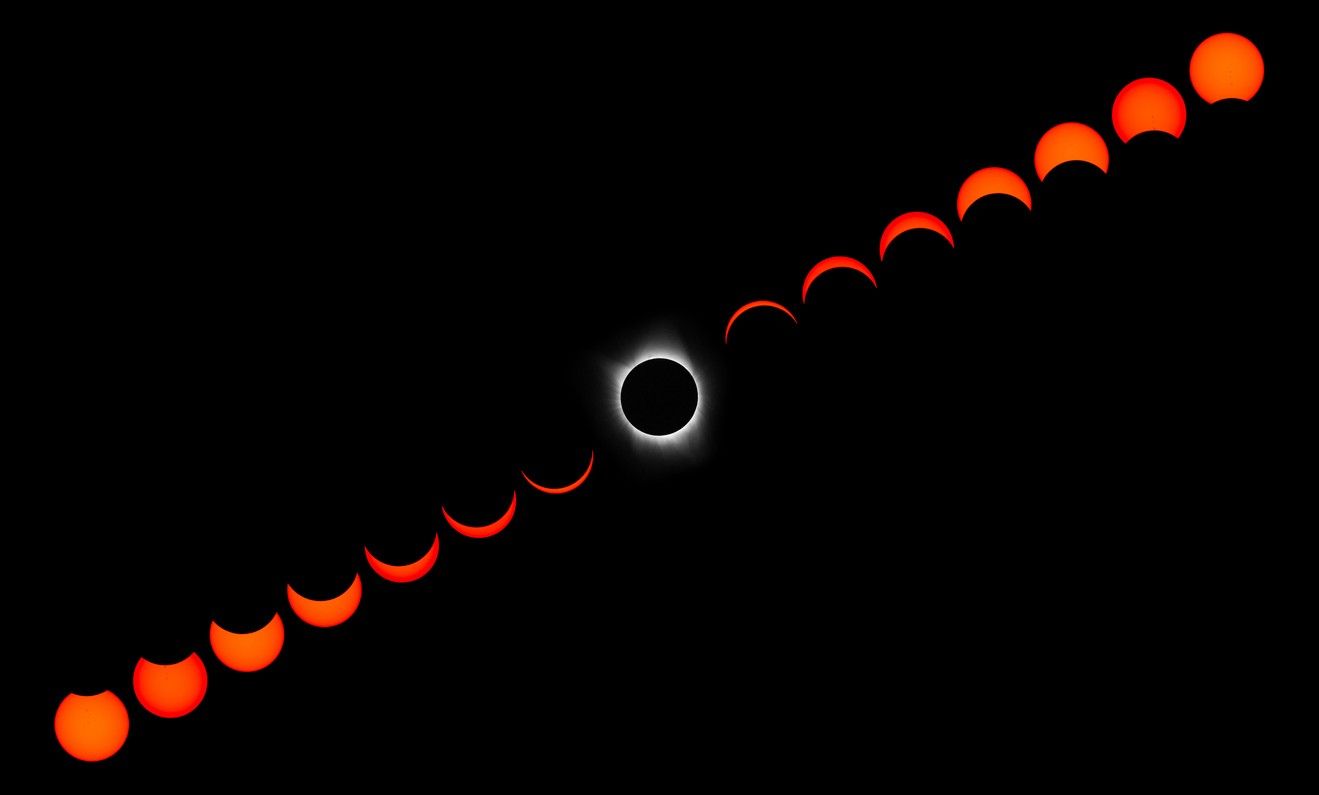Prepare to be captivated by an extraordinary celestial event as a total solar eclipse graces the skies across North America on April 8. These eclipses are awe-inspiring, casting darkness over the day, but they can only be seen from select locations. That’s why witnessing an eclipse is often deemed a once-in-a-lifetime opportunity.
What is a solar eclipse?
A solar eclipse is a celestial event where the moon moves between the earth and the sun, blocking out the sun’s light either partially or entirely.

What happens during a total solar eclipse?
During a total solar eclipse, the moon completely covers the sun, casting a shadow on the earth and creating what is known as the “path of totality.” Within this path, observers experience darkness akin to twilight as the sky turns dark.
When is the total solar eclipse of 2024, and where will it be visible?
The total solar eclipse of 2024 will occur on April 8. It will be visible across a 185-kilometer stretch between Mexico, the US, and Canada. Additionally, 18 different US states will experience the event.

What is the duration of the total solar eclipse in 2024?
The event will last about two and a half hours, with totality—the period when the sun is completely covered by the moon—lasting approximately four minutes. The peak spectacle is expected to last for up to 4 minutes and 27 seconds.
How can one safely view the solar eclipse?
It’s crucial to wear protective eyewear, such as licensed eclipse glasses, during the partial phases of the eclipse. Staring directly at the Sun, even during an eclipse, can cause permanent damage or blindness.

Can the solar eclipse be watched online?
Yes, for those unable to witness the eclipse in person, NASA will be live-streaming the event. The live stream will feature telescope views from various sites along the eclipse path, along with expert conversations. The McDonald Observatory in Texas and the website timeanddate.com will also offer live streams of the total solar eclipse.
The next total solar eclipse visible over parts of the UK is expected to occur in September 2090. However, even then, the path of totality will only graze the south-west tip of the country, covering regions such as Cornwall and Devon. This path closely resembles that of the 1999 eclipse.
